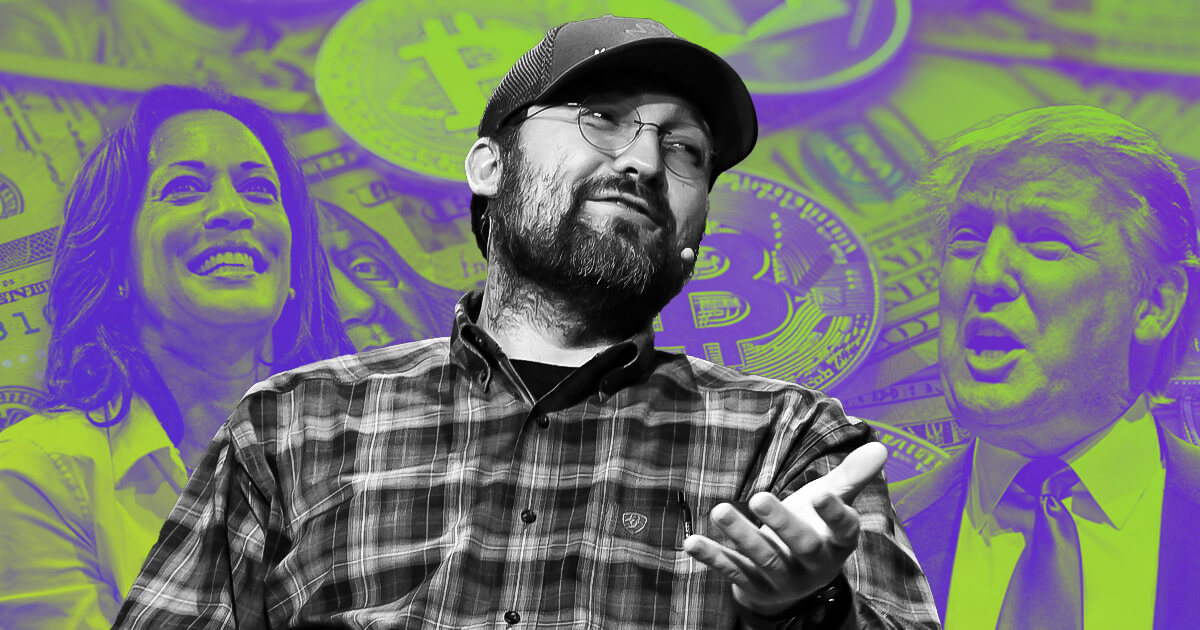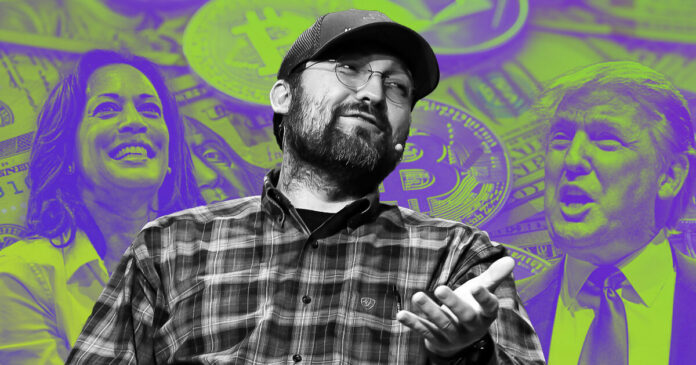
Cardano and Ethereum co-founder Charles Hoskinson expressed doubts in regards to the crypto insurance policies of former President Donald Trump and Vice President Kamala Harris in current interviews with mainstream information retailers.
In an interview with The Monetary Instances, Hoskinson expressed concern that neither Trump nor Harris have proven a transparent method ahead for the crypto sector within the US, regardless of the previous's extra progressive stance on the business.
He advised the newspaper:
“I don't see that stage of high quality and class within the discourse.”
Hoskinson criticized Harris, suggesting her strategy would probably proceed insurance policies of the Biden administration, which he described as dangerous to the business.
In the meantime, he expressed doubt that Trump may assemble a staff able to shifting the crypto business ahead, citing the previous president's historical past of excessive employees turnover.
He additionally famous a generational divide within the Democratic Get together in relation to digital property, in comparison with Republicans who appear extra open to the concept of honest regulation, citing Sen. Cynthia Lummis and her efforts within the business.
Hoskinson emphasised that whereas senior leaders comparable to Elizabeth Warren and President Joe Biden have proven reluctance towards the business, youthful Democrats, together with Ro Khanna, are extra open to discussing honest regulatory measures. He anticipates that the get together's stance on cryptocurrency regulation is prone to evolve over time.
Trump's Professional-Crypto Stance and Get together Dangers
In the meantime, throughout an interview with CNBC, Hoskinson was optimistic about Trump's stance on cryptocurrencies regardless of his reservations. He stated Trump and his household's involvement in DeFi initiatives and his talks at crypto conferences positioned him as a “extra pro-crypto” candidate.
He stated:
“Trump is definitely the favourite from a crypto perspective.
Hoskinson additionally famous that whereas Trump's strategy could seem opportunistic, such habits is widespread in American politics and “each politician has a level of opportunism.” He added {that a} broad coalition is important to enact lasting modifications within the business.
Hoskinson additional warned that Trump's new DeFi platform, World Liberty Monetary, may turn out to be a partisan problem. He stated the previous president's previous actions have typically drawn sturdy reactions from his political opponents and this enterprise could also be no completely different.
He stated:
“Trump is launching a DeFi app and that's scary for me as an business as a result of all the pieces Trump does is hated by the left with such a ardour.”
He harassed that the enterprise dangers politicizing an in any other case bipartisan house, including that Democrats may retaliate through the use of authorities businesses just like the Justice Division or the Securities and Alternate Fee (SEC) to dam the venture.
He expressed concern that such regulatory strikes may have broader implications for the crypto business as a complete, probably pushing it additional overseas.
Regulatory readability
In a broader context, Hoskinson emphasised that international adoption of cryptocurrencies is already progressing and can proceed no matter US involvement. He emphasised the significance of regulatory readability and a supportive coverage atmosphere to help the business inside US borders.
He stated that if the US establishes a transparent regulatory regime for the business, it may probably add “$5 to 10 trillion” to its financial system over the following decade by adopting decentralized applied sciences and creating fairer techniques.
He pointed to progressive regulatory developments in areas comparable to Singapore, the Center East and Europe as key examples of how different nations are shifting ahead with cryptocurrency-friendly insurance policies.
Hoskinson has expressed a want for the US to re-enter the race and take a number one position, however stays unsure whether or not the political panorama will adapt to the worldwide motion in the direction of decentralization.
